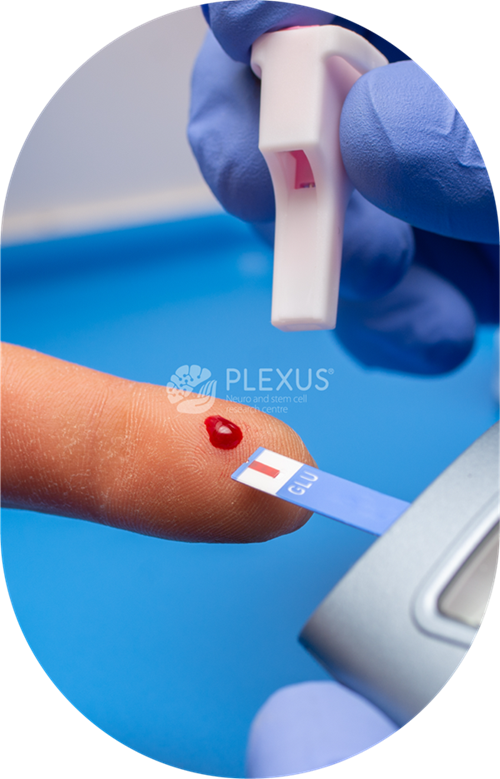- About Us
- Cell Therapy
- Neurology
- Disorders
- Services
- All Therapies
- Regenerative Rehabilitation
- Rehabilitation for Stroke
- Rehabilitation for Spinocerebellar Ataxia
- Parkinson’s Disease Rehabilitation
- Multiple Sclerosis Rehabilitation
- Rehabilitation for Spinal Cord Injury
- Rehabilitation for Motor Neuron Disease
- Rehabilitation for Cerebral Palsy
- Brachial Plexus Injury rehabilitation
- Rehabilitation for Global Developmental Delay
- Childhood Disorders Clinic
- Outpatient Services
- Ask a question
- Request an appointment
- About Us
- Cell Therapy
- Neurology
- Disorders
- Services
- All Therapies
- Regenerative Rehabilitation
- Rehabilitation for Stroke
- Rehabilitation for Spinocerebellar Ataxia
- Parkinson’s Disease Rehabilitation
- Multiple Sclerosis Rehabilitation
- Rehabilitation for Spinal Cord Injury
- Rehabilitation for Motor Neuron Disease
- Rehabilitation for Cerebral Palsy
- Brachial Plexus Injury rehabilitation
- Rehabilitation for Global Developmental Delay
- Childhood Disorders Clinic
- Outpatient Services
- Ask a question
- Request an appointment
Cell Therapy for Diabetes
A Sweet Solution
A study in 2021 showed India had the second largest population of adults between the ages of 20 years and 79 years with diabetes. It is estimated that 1 in every 11 Indians is diabetic.
Now that is a worrisome statistic, isn’t it?
Diabetes has long been a challenging and unrelenting condition. For those diagnosed with diabetes, managing blood sugar levels becomes a daily routine, often with the need for insulin injections, medications, and strict dietary control. In recent years, Cell therapy for both Type 1 and Type 2 diabetes has emerged as a promising frontier.

Let’s Understand Diabetes

Type 1 Diabetes
This type of diabetes is an autoimmune condition where the body’s immune system mistakenly targets and destroys the insulin-producing beta cells in the pancreas. Typically, those with Type 1 diabetes rely on external insulin sources.
Symptoms:
- Sudden onset with abrupt symptoms
- Diabetic Ketoacidosis (DKA), seen in severe cases of untreated Type 1 diabetes; characterized by high blood sugar, dehydration, vomiting, and confusion. DKA can be life-threatening and needs immediate medical attention
Type 2 Diabetes
This type of diabetes is generally linked to lifestyle factors. It occurs when the body’s cells become insulin resistant. This hinders the body’s ability to regulate blood sugar effectively.
Both types of diabetes come with their unique challenges and complications, but the unifying goal is better management and, ideally, a cure.
Symptoms :
- Gradual onset
- Peripheral neuropathy (tingling, numbness, or pain in the hands and feet)
- Recurrent infections especially in the skin, gums, or urinary tract
- “Acanthosis nigricans” is a skin condition characterized by dark, thickened patches of skin, usually in the folds of the body
- Polycystic Ovary Syndrome (PCOS) in women has been linked to Type 2 diabetes

Common Symptoms Type 1 and Type 2 Diabetes





Note: The combination of symptoms and their severity varies from person to person. There have been cases where individuals experience no symptoms at all, and get diagnosed with diabetes during a health check-up. This is why we recommend regular screenings, especially for those who have a family history of obesity and diabetes. Individuals with a sedentary lifestyle are also at risk of diabetes, and need to be regular with their health check-ups.
Causes of Sensory Processing Disorder

Cell therapy for diabetes in India

Cells possess the remarkable ability to differentiate into various cell types within the body, making them a powerful tool for repairing damaged tissues. Their regenerative capacity makes them the ideal choice for alternative treatment for diabetes.
At Plexus, we use Mesenchymal Cells (MSCs) to treat both Type 1 and Type 2 diabetes.
Cell therapy for Type 1 diabetes
Since Type 1 diabetes is characterized by a loss of functional beta cells, Cell therapy essentially focuses on replacing these damaged or missing beta cells with healthy ones.
Cell therapy for Type 2 diabetes
Type 2 diabetes is basically associated with insulin resistance. This means the body’s cells are not effectively responding to insulin. Cell therapy focuses on improving insulin sensitivity and restoring (normal) glucose regulation.
While Cell therapy for diabetes is gaining immense ground in recent years, at Plexus we still root for lifestyle modifications like dietary changes, weight management, blood sugar monitoring, and stress management. Reach out to us today to take control of your diabetes.
Our treatment program at Plexus
We are one of the leading Sensory Processing Disorder treatment centers in the country. Under the guided supervision of Dr Na’eem Sadiq, our team of occupational therapists provides Sensory Integration Therapy to treat neurological conditions like Cerebral Palsy in children.
After a thorough evaluation, we determine how the therapy will benefit your child’s condition. Our therapists plan a sensory diet exclusively for your little ones and record their improvements on a weekly basis.
- Anticipating action and outcome
- Correctly interpreting sensory input
- Creating physical equilibrium and a sense of space
- Developing positive behavior patterns
- Eliminating fear
- Encouraging play and socialization
- Lessening sensory defensiveness
- Minimizing input intolerance
- Reducing negative physical reactions
Anticipating action and outcome
Correctly interpreting sensory input
Creating physical equilibrium and a sense of space
Developing positive behavior patterns
Eliminating fear
Encouraging play and socialization
Lessening sensory defensiveness
Minimizing input intolerance
Reducing negative physical reactions
What our patients say

Ramanujan (name changed)
“I believe that Dr Na’eem Sadiq is an amazing doctor with a friendly, warm attitude. His care towards his patients is commendable and he is a great listener. He explains to his patients and their family in the most simple terms about the root cause of problems and provides a comprehensive treatment for them. We came to India from the US to get Cell Therapy for our son with Autism.
We sincerely thank Dr Na’eem Sadiq and his staff. It was a wonderful journey with you. Keep up the good work! I will recommend Plexus to all my family and friends.”

Priyanka Reddy (Name changed)
“My experience with Plexus has been pleasant. Dr Na’eem and his staff members have been helpful and they treated my son who was suffering Sensory Processing Disorder wholeheartedly. I am glad I found this center as it helped my son recover as soon as possible.”

Ramanujan (name changed)
“I believe that Dr Na’eem Sadiq is an amazing doctor with a friendly, warm attitude. His care towards his patients is commendable and he is a great listener. He explains to his patients and their family in the most simple terms about the root cause of problems and provides a comprehensive treatment for them. We came to India from the US to take treatment for our child with anxiety.
We sincerely thank Dr Na’eem Sadiq and his staff. It was a wonderful journey with you. Keep up the good work! I will recommend Plexus to all my family and friends.”

Priyanka Reddy (Name changed)
“My experience with Plexus has been pleasant. Dr Na’eem and his staff members have been helpful and they treated my son who was suffering Sensory Processing Disorder wholeheartedly. I am glad I found this center as it helped my son recover as soon as possible.”
FAQs answered
Yes, Cells can help improve immune function and insulin sensitivity, as well as supporting the pancreas’ function of glucose regulation.
Studies indicate that about 70% of Type 1 diabetes cases have shown significant improvement in slowing down the progression of the condition.
Mesenchymal Cells have shown incredible promise as a treatment option for diabetes.
There is no cure for diabetes. However, the condition can be managed effectively through proper medical intervention, lifestyle modifications, and regenerative treatments like Cell therapy.











